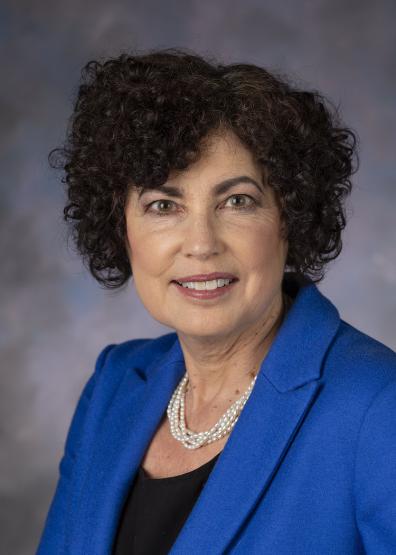Student Spotlight: Lynn Rosenthal
Introduce Yourself
I am Lynn Rosenthal, I grew up in Miami and have lived in New Mexico and Washington, DC. I have an undergraduate degree in social work from Florida State University. I just moved from Columbus, OH back to Washington, DC to take a position at the US Department of Health and Human Services to serve as the Director of Sexual and Gender-based Violence. Previously, I was in Columbus, OH as the President of the Center for Family Safety and Healing at Nationwide Children's Hospital. TCFSH is a great organization, and I was privileged to serve there for nearly 4 years. I wanted to return to DC to work at the national level. From 2009- 2015, I worked in the Obama Administration as the White House Advisor on Violence Against Women. In this role I worked to develop new initiatives across the federal government to respond to and prevent domestic and sexual violence. I started my work very much at the grassroots level working with local women's health clinics and domestic violence centers. I'm a social worker by training but an advocate by passion.
Why did you choose the Voinovich School and the Executive MPA program?
Since I am late in my career, it's obviously taken me a long time to go back to graduate school. My undergraduate degree in social work served me well in advocacy and crisis intervention, but I wanted to learn some of the harder skills in policy and management. I looked at public health, social service administration, and leadership programs and I talked with a lot of top schools. But on the very first webinar with the Voinovich School, I was impressed with the applied nature of the program, the involvement of the school in the challenges facing the region, and the blend of policy and management. I had a spreadsheet of all the different schools I was looking at with pros and cons, but I just remember thinking "I like this program" and that was it.
Tell us a little about your area of research or project work you have conducted in your program and what you have learned
I've been focused on my policy and program area of sexual and domestic violence and how we can be more effective in understanding performance management, developing outcomes, and understanding the evidence-base for our work. In Dr. Caver's class, I dug way into the Baldridge criteria and wrote about how my organization could make strategic improvements in the key categories. I also wrote a piece on the Balanced Scorecard and how DEI work was missing. In Dr. Raffle's class, we focused on evaluation and social justice, and I looked at how an evaluation of domestic violence services could bring diverse voices to the table.
How have you applied your coursework in your career?
I've applied what I have been learning in this program across the board, from budgeting to evaluation to management. Now that I'm in a different role, I'm finding the classes on leadership particularly useful.
What is the best leadership advice you have received?
The CEO at the hospital told me, if you are clear about accountability, you can provide maximum flexibility for people in how they do their work. I was struggling with how to ensure performance under the pandemic conditions and how to be responsive to the wellness needs of employees. He made it seem possible to do both.
What do you like most about your program?
I love everything about this program, and my only regret is that I didn't start sooner. I've learned things that I should have known 20 years ago. I learned a lot the hard way on the frontlines of services, in policy roles, as a leader. I didn't realize that the field of public administration would capture what I do and teach me about to do it better. I've been roles where I had to understand the political context of developing public policy. This program has given me a greater intellectual curiosity along with applied skills. Also, I decided to read more about women in this field and became obsessed with Mary Parker Follett and her contributions. This program had been a gift to me.
What are your future career goals?
Right now, I'm focused on doing my best work within the federal government to make a difference on sexual violence. There is such a strong connection between experiences of sexual violence and health and behavioral health problems throughout the lifespan. Yet this area does not have enough focus at any level. We must do more. But yes, even at this stage of my career I have goals for the future. I'd like to continue in leadership roles, whether at the local or national level. I've run local, statewide, and national organizations, and worked at the top levels of government, yet I still have so much more to learn and apply. I'm grateful to this program for helping me see that.
